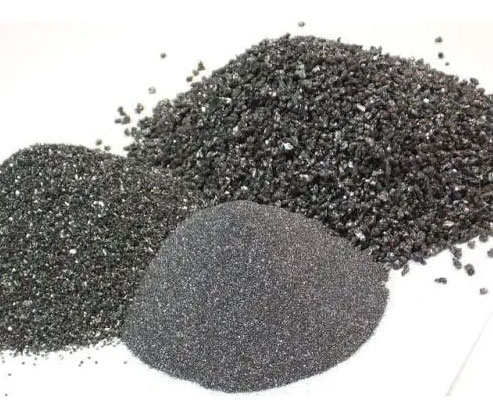
Silicon Carbide (SiC) is a compound that has gained significant attention across various industries due to its exceptional properties. This article explores the applications and benefits of SiC, highlighting its versatility, durability, and potential to revolutionize different sectors.
Silicon Carbide is a synthetic compound composed of silicon and carbon atoms. It possesses a unique crystalline structure, making it highly resistant to extreme temperatures, chemicals, and mechanical stress. SiC exists in various forms, including powder, grains, and fibers, enabling its utilization in a wide range of applications.
SiC's remarkable properties make it an ideal material for power electronics. Its high thermal conductivity and breakdown voltage enable efficient heat dissipation and withstand higher voltages, respectively. SiC-based power devices have lower energy losses and higher switching frequencies, leading to improved energy efficiency and compact designs. This has revolutionized industries such as electric vehicles, renewable energy, and power grid systems.
SiC's exceptional hardness and durability make it an excellent choice for abrasive applications. It is widely used in grinding, cutting, and polishing tools. SiC abrasives offer superior performance, extended tool life, and precision in various industries, including automotive, aerospace, and metal fabrication. Additionally, SiC-based abrasives are environmentally friendly, reducing the overall environmental impact of these processes.
SiC's high melting point and thermal stability make it an ideal material for refractory applications. SiC refractories are used in kilns, furnaces, and other high-temperature environments, providing excellent resistance to thermal shock and chemical corrosion. SiC ceramics, on the other hand, possess exceptional mechanical strength, wear resistance, and chemical inertness, making them suitable for demanding applications like cutting tools and engine components.

SiC's unique properties have revolutionized the semiconductor industry. SiC-based devices, such as Schottky diodes and power transistors, offer higher temperature tolerance, faster switching speeds, and lower energy losses compared to traditional silicon-based devices. These advancements have enabled the development of high-performance electronics, including electric vehicle chargers, wireless charging systems, and advanced power management solutions.
The versatility and durability of Silicon Carbide position it as a promising material for future advancements. Ongoing research and development aim to further enhance SiC's properties and reduce production costs. As SiC gains more recognition and acceptance, its widespread adoption will drive innovations in multiple industries, leading to increased energy efficiency, improved product performance, and reduced environmental impact.
In conclusion, Silicon Carbide's unique combination of properties makes it an invaluable material across various industries. Its applications in power electronics, abrasive tools, refractories, ceramics, and semiconductors have already made a significant impact. With its versatility, durability, and ongoing advancements, Silicon Carbide is poised to revolutionize industries and shape the future of technology and manufacturing.

Write a Message